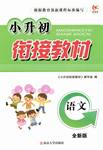题目内容
近年来“汉语热(Chinese fever)”在全球异常火爆,到目前已有3000万外国人在学汉语,在一次英语课上,老师让学生讨论“汉语热”这种现象,讨论的结果主要包括以下三方面:
中国拥有悠久的历史,使汉语更丰富,更具吸引力;
中国的经济发展迅速,很多想进入中国市场的海外商人需要了解中国;
国际交往日益频繁,中国已成为其他国家关注的中心。
请你用英语写一篇100字左右的短文,总结这次会议上讨论的结果,可适当发挥。
“Chinese fever”has been spreading across the world in recent years. More than 30 million people in other countries have been learning Chinese. Why has Chinese become so popular? We think that there are three reasons for it.
Firstly, China is a country with a long history, which has made the Chinese language richer and more attractive. Secondly, China’s economy has been developing very quickly in recent years. Many overseas businessmen who want to enter the Chinese market need to understand China and the Chinese culture. Most importantly, China is becoming increasingly active in international affairs and has become the focus of many other countries’ attention.
In a word, there is no doubt that the Chinese language will become more and more popular.
【解析】
试题分析:这是一篇针对某种现象阐述原因的文章,因此文章的结构安排应为:第一部分介绍全球"汉语热"的现状;第二部分分析其成因:第三部分作总结。注意:介绍现状时一定要简单,分析成因才是文章的重心所在。
本文时态运用正确。句型富于变化,复合句运用合理。结构清晰紧凑,特别是运用Firstly, Secondly, Most importantly 使原因分析层层递进,层次分明且重点突出,而不是平铺直叙,使文章有起伏感。文章行文严谨,前后照应,把握住了文章重点,成因分析很充分。
【亮点说明】范文用了一些词组:如be supposed to, on one hand … on the other hand …, be aware of, such as, familiarize … with, in advance, so as to等等。注重句子的连接:如as, or, Actually, and, In addition, last but not least,句型上也是多变:The passage mainly tells us that the Chinese tourists ranked the second in a global poll of worst travelers, as they behaved impolitely and improperly when travelling abroad.这句话用了非谓语动词作状语,In addition, we should familiarize ourselves with the local customs in advance, so as to avoid misunderstandings or troubles. Last but not least, do as the rules of scenic spots require us to do这句话运用了目的状语从句等等。
考点:考查话题作文

 学而优衔接教材南京大学出版社系列答案
学而优衔接教材南京大学出版社系列答案